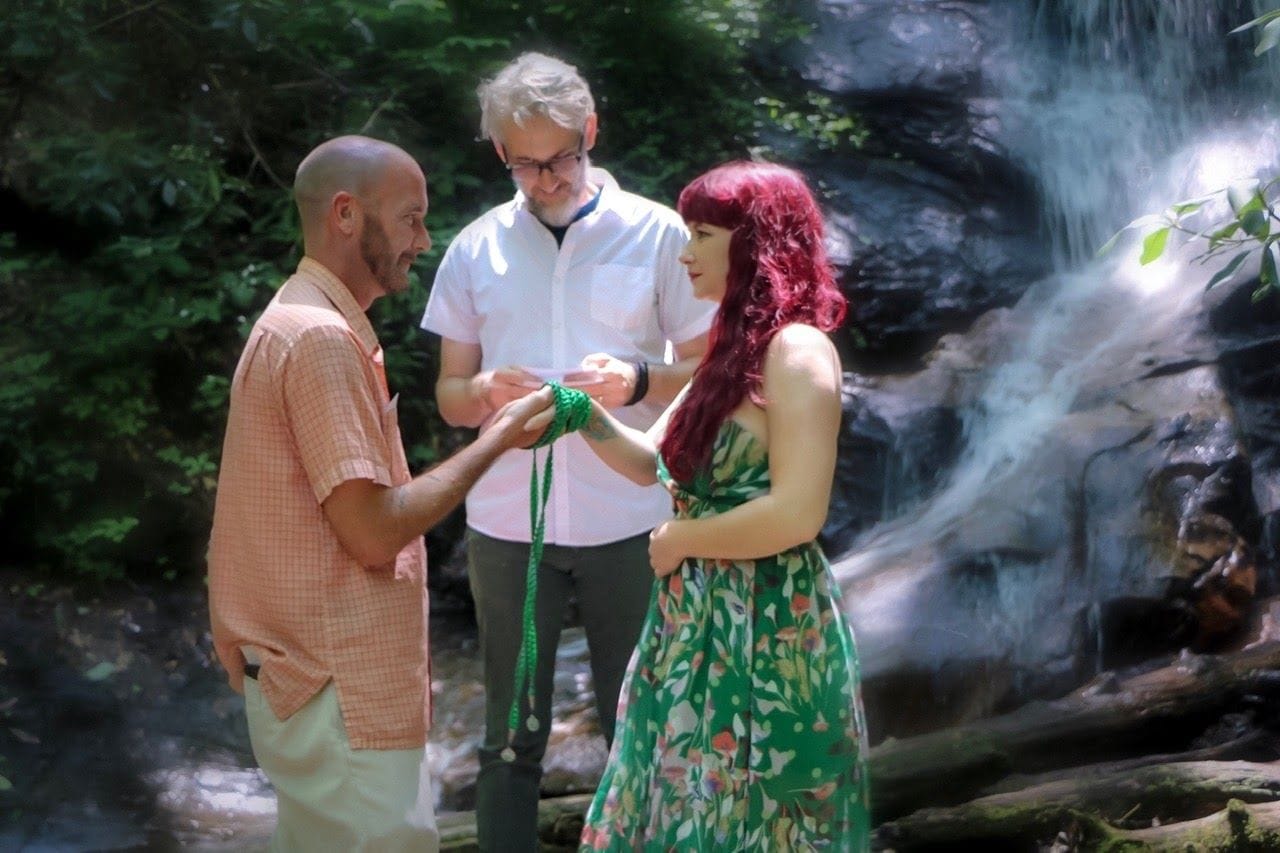Elopement Ceremony:
An elopement ceremony is a private wedding with few or no guests in attendance. It is suitable for couples who prefer an intimate and stress-free ceremony. Elopements can be chosen by introverted or shy individuals who may not feel comfortable speaking in front of others. In California, elopements can be legally binding if the couple qualifies for a confidential marriage license.
“Ambush” and “Surprise” Weddings:
An ambush wedding is when a couple keeps their wedding plans a secret from their guests until the ceremony is underway. This can add an element of surprise and excitement to the event, especially for holiday weddings. However, it is important to note that legally, both parties must be informed and agree to the marriage before the ceremony takes place.
Traditional Religious Ceremony:
Conducted by clergy, these ceremonies follow the specific liturgy and traditions of a particular religious denomination. The content and rituals involved can vary depending on the couple’s cultural and religious background.
Non-Traditional Religious Ceremony:
These ceremonies often take place outside of consecrated spaces and may incorporate modernized religious liturgy or symbols. Couples may choose to combine elements from multiple traditions or involve friends and family members in the officiating process.
“Spiritual but Not Religious” Weddings:
For couples who identify as spiritual but do not affiliate with a specific religious denomination, these ceremonies draw inspiration from personal beliefs and philosophical texts. They may incorporate elements from various wisdom traditions and focus on the couple’s unique spiritual journey.
Non-Religious Weddings:
Non-religious ceremonies encompass a wide range of styles, including humanist or romantic ceremonies, atheist weddings, or civil ceremonies. These ceremonies prioritize personal values and the celebration of love without adhering to any specific religious doctrine.
Interfaith Weddings:
Interfaith weddings involve couples from different religious backgrounds. They are often officiated by non-denominational or interfaith clergy who incorporate elements from both families’ traditions and cultures. These ceremonies can also include secular components based on the couple’s preferences.
Culturally-based Ceremonies:
Culturally-based ceremonies draw inspiration from a couple’s national, ethnic, or cultural origin. They may be performed separately or combined with civil or religious ceremonies. Cultural weddings celebrate unique customs and traditions that reflect the couple’s heritage.
Custom (or “Bespoke”) Wedding Ceremony:
Custom ceremonies are created in collaboration with a writer or officiant, tailored to the couple’s values and style. These ceremonies can be entirely original or blend classic and modern elements to tell the couple’s story. Personal vows and involvement of friends and family members are common in custom ceremonies.
Simple Wedding Ceremony:
Simple weddings embrace the principles of voluntary simplicity by minimizing spending and focusing on the meaning of the ritual. They often involve cooperative efforts from friends and family, emphasizing community and environmental consciousness.
Green Weddings:
Green weddings prioritize environmentally responsible practices, such as minimizing waste, reducing carbon footprints, and using sustainable and organic products. They often align with the principles of simple weddings.
“Offbeat” Weddings:
Offbeat weddings defy traditional norms and incorporate unconventional locations, content, wardrobe, and rituals. They emphasize creativity, individuality, and community participation, often with a smaller budget.
Theme Wedding Ceremony:
Theme weddings add a fun and memorable element to the celebration. They draw inspiration from various sources such as history, art, literature, music, hobbies, or even geek culture. Themes can be reflected in the ceremony itself and extend to the reception decor and activities.
Commitment Ceremony:
A commitment ceremony is a non-legally binding celebration of love and faithfulness between two individuals who may choose not to or cannot legally marry. While commitment ceremonies were common before marriage equality, they have become less prevalent since same-sex marriage became legal. It is important to note that conducting a commitment ceremony in the absence of a valid marriage license is a violation of the law.
Renewal of Vows:
A renewal of vows ceremony is for couples who are already married and wish to reaffirm their love and commitment. These ceremonies can recreate the original wedding ceremony or incorporate new elements to reflect the next phase of the marriage. The presence of an officiant or witnesses is not legally required for renewal of vows ceremonies.
I offer a range of services, from performing quick ceremonies with minimal preparation to creating custom ceremonies tailored to your preferences. I am excited to work with you and help create the perfect wedding ceremony. Please reach out to discuss your specific needs. I look forward to hearing from you and helping you celebrate your love!


